Training and Cohort
Much of the appeal dogs have for comparative neuroscience research relates to the possibility to train them in a way that they can be scanned without sedation and physical restraint (Berns & Cook 2016, Bunford et al. 2017, Thompkins et al., 2015 for reviews). The CCNU built on the pioneering work of other groups that have paved the way for such training to be successful. Our approach, as detailed in Karl et al., 2021, entails gradual training in the many little steps the animals have to acquire so they can ultimately be scanned while in a comfortable yet attentive condition. The training exclusively relies on positive reinforcement and (food) rewards for the correct behavior, and we do not restrain the dogs.
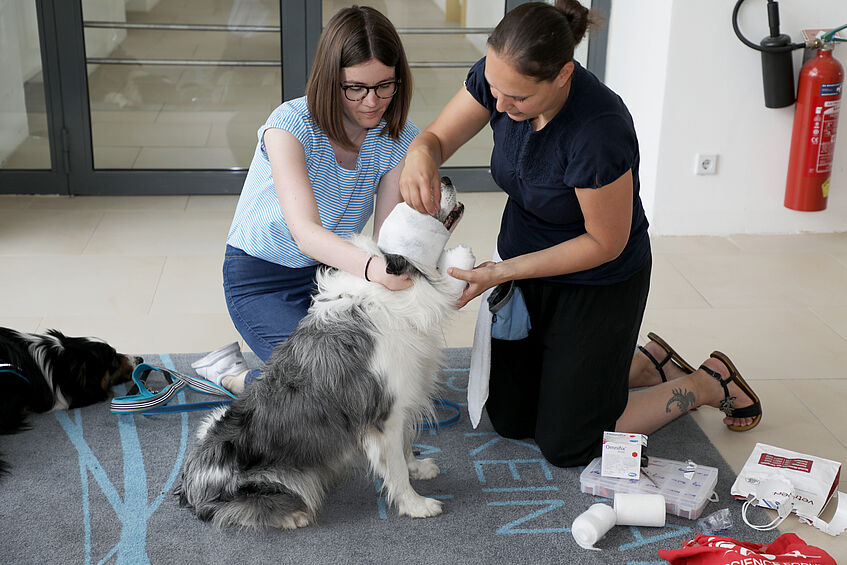
Noise protection: ear plugs & head wrap
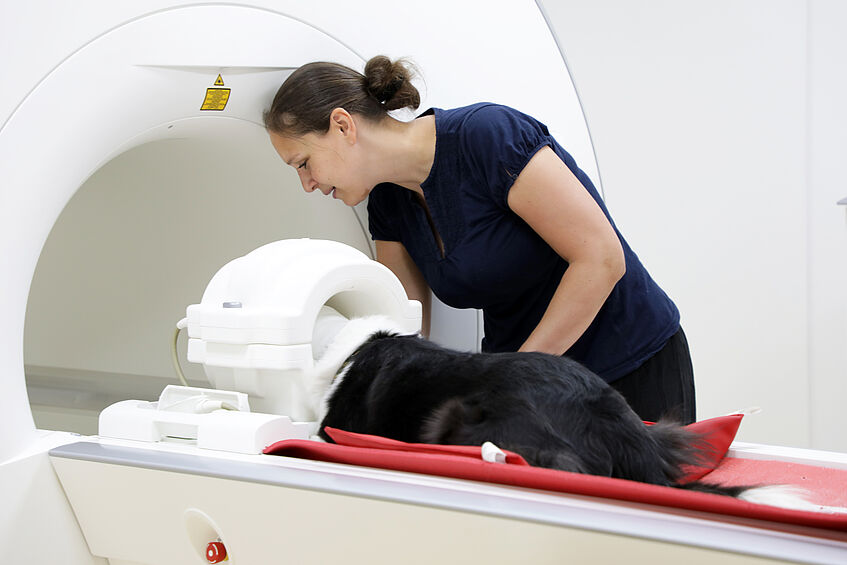
Entering the scanner bore
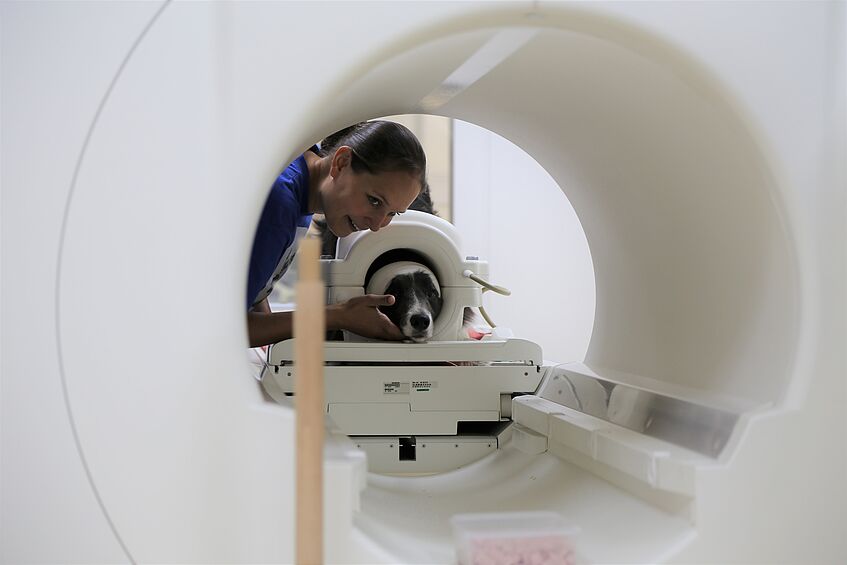
Adjustment of head position
In brief, training first takes place in a tailor-made mock scanner before the dogs move on to the actual MRI scanner. Weekly training takes usually 30-45 minutes, individualized for each dog’s needs. It consists of a strict training schedule with six stepwise training criteria for the dogs:
(1) Stay in prone position with the head in the mock coil on the floor for 5 min, (2) go up the ramp and lay down still on the moving table, (3) stay still with the head in the mock coil on the table in front of the mock scanner bore for 5 min, (4) learn to wear ear plugs and a head wrap ("happy hoodie"), and get used to the increasing volume of scanner noise playbacks (up to 55 db, without protection, and to max 85 dB with protection), (5) stay still with the head in the mock coil while being moved in the mock scanner and lay there calm for 9 min, (6) remain motionless in the coil in the mock scanner while watching videos on a screen in front of the mock scanner.
When the dogs fulfilled the final training criteria they proceeded to the real scanner environment at the Neuroimaging Center (NIC) Vienna.
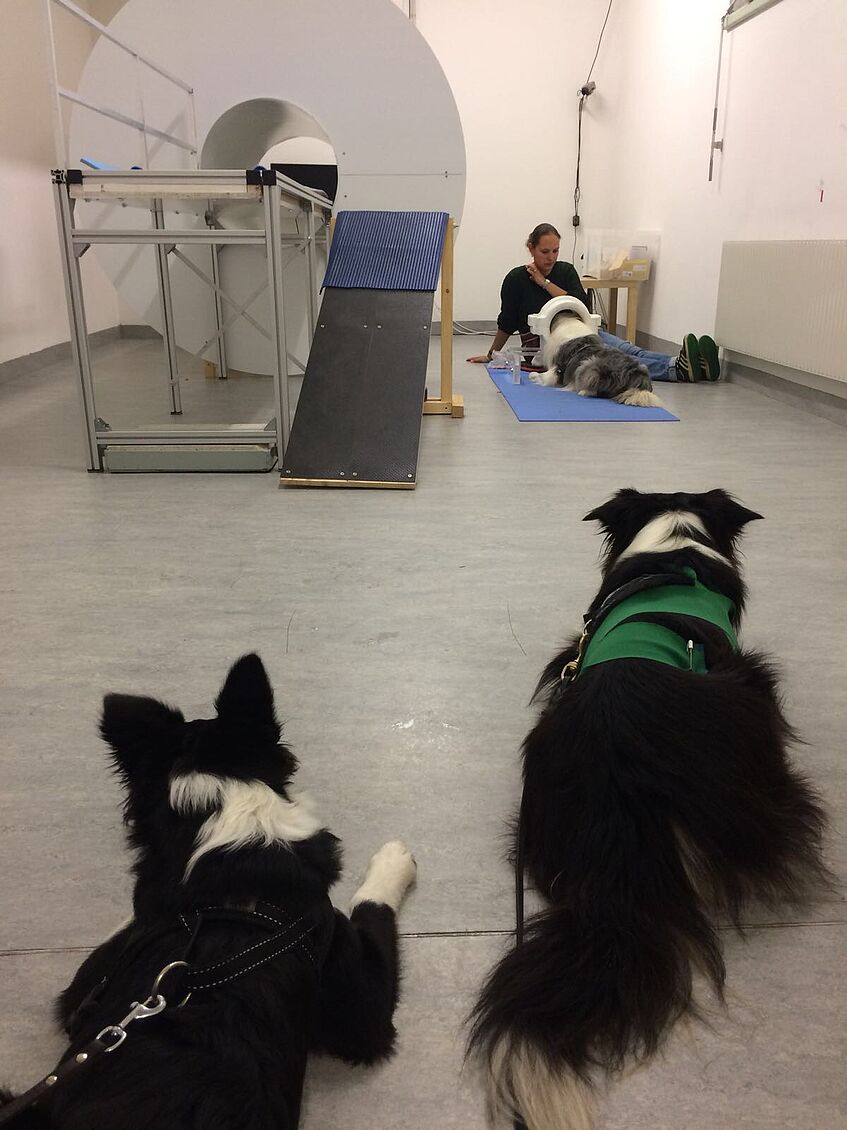
Training at the mock scanner
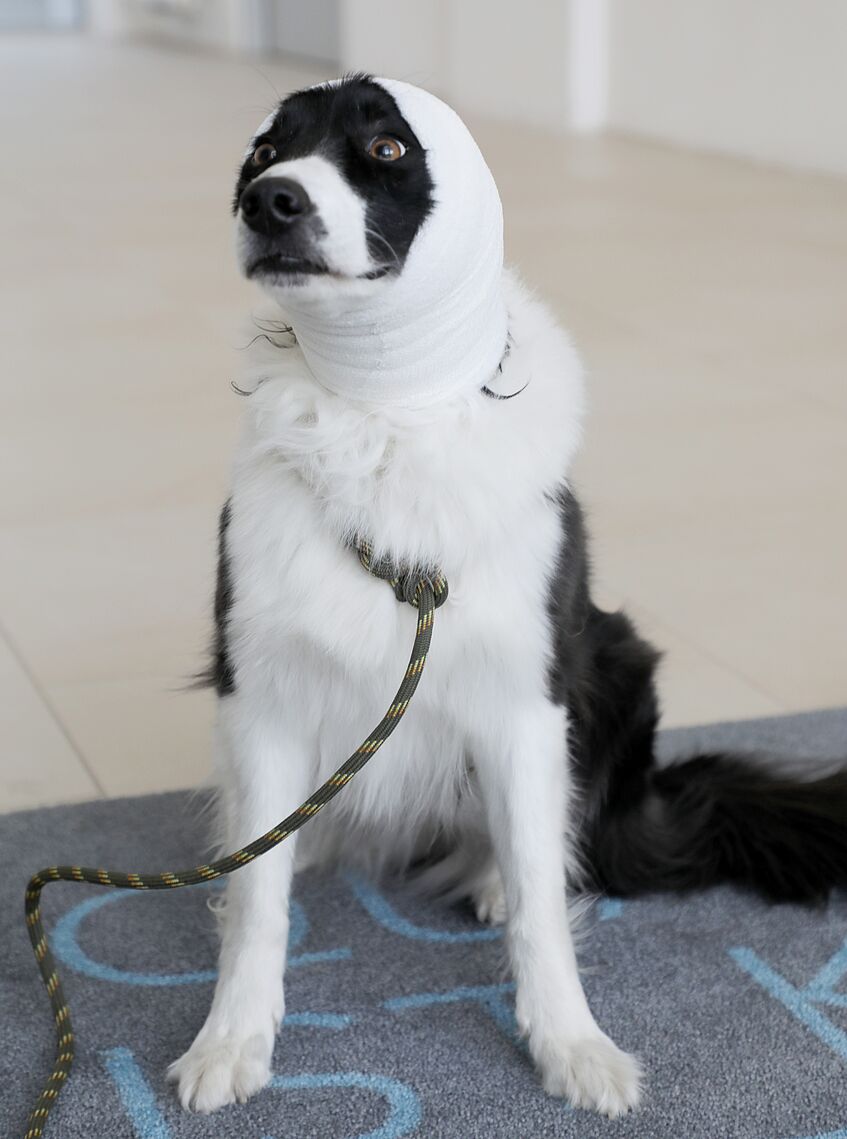
Completed noise protection
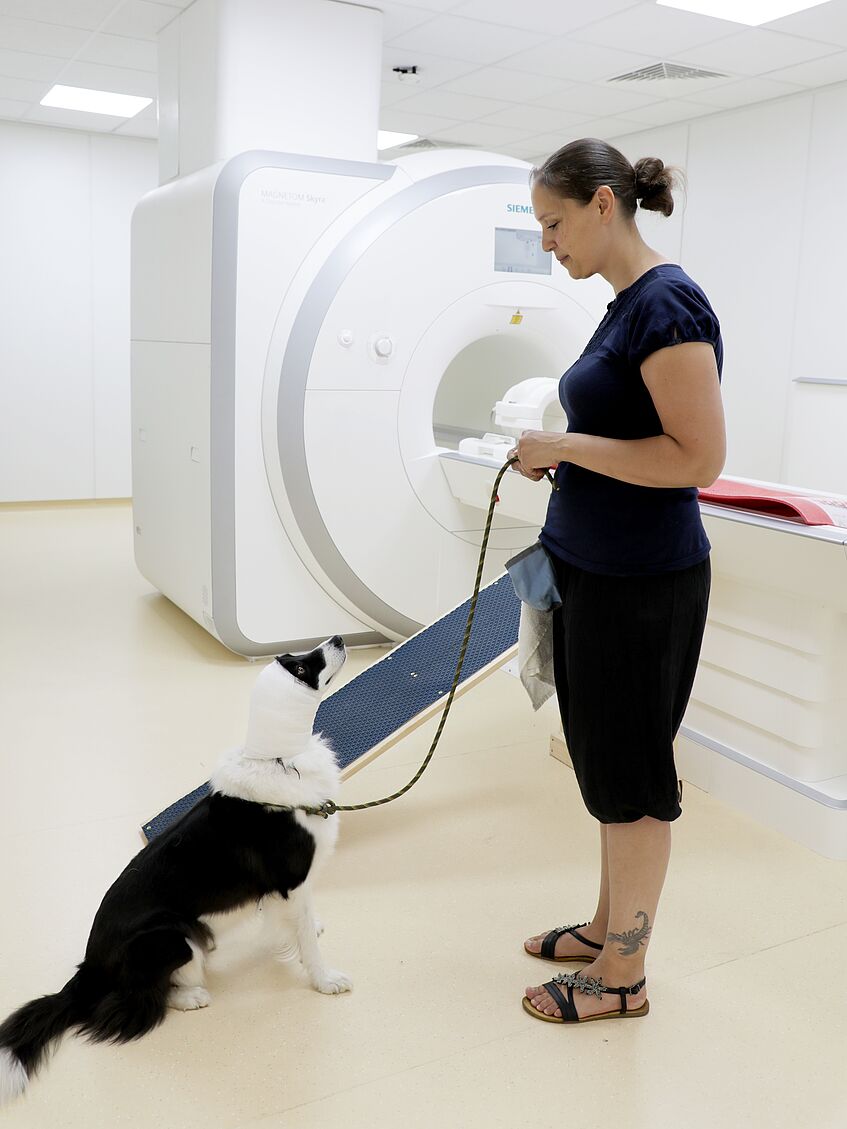
Scanner room with custom-made ramp
Following the training in the mock scanner, they generalize the training very well to the real scanner, and it usually takes only a few sessions in the real scanner environment until they are ready to be included in their first full-fledged fMRI experiment. Importantly, once trained a dog can participate in several studies. In case of longer breaks between scanning, a refreshment training session can be used, if necessary.
You can find our current cohort and alumni under the Canine Participants section.
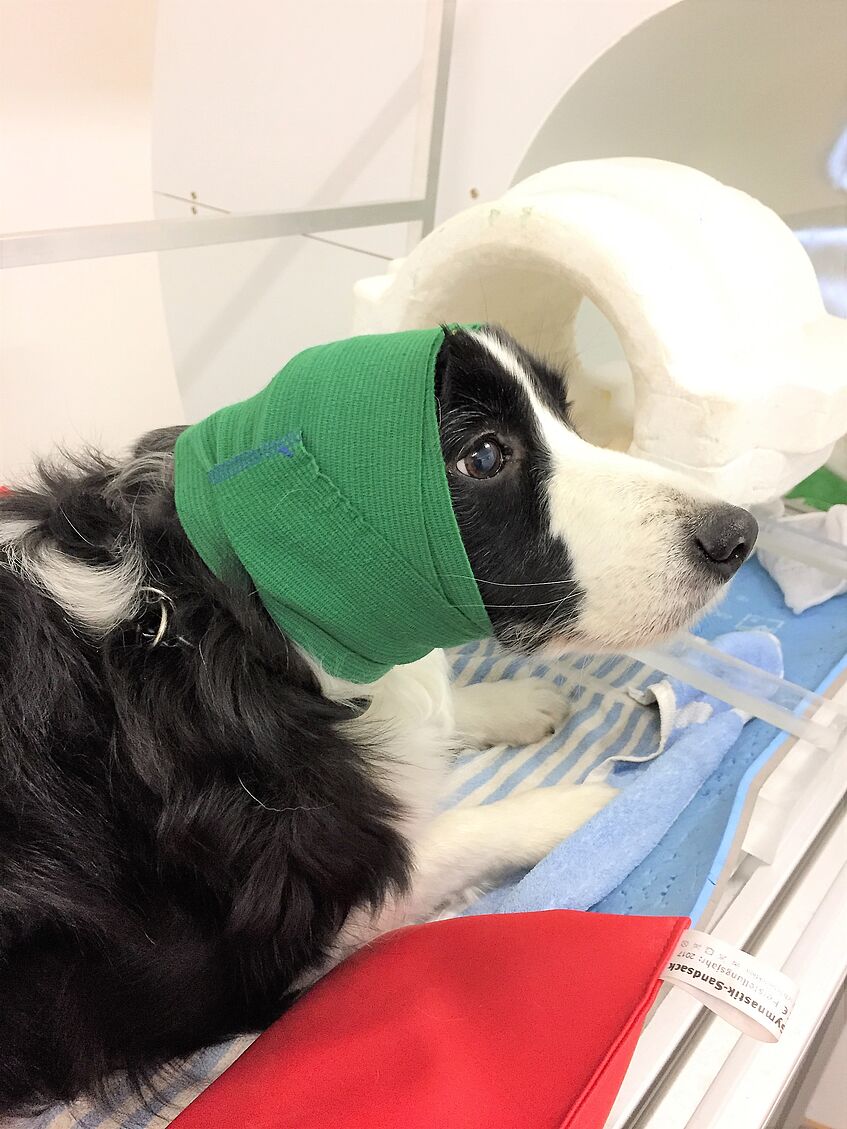
Practice head wrap and mock knee coil
Ethical and animal welfare aspects
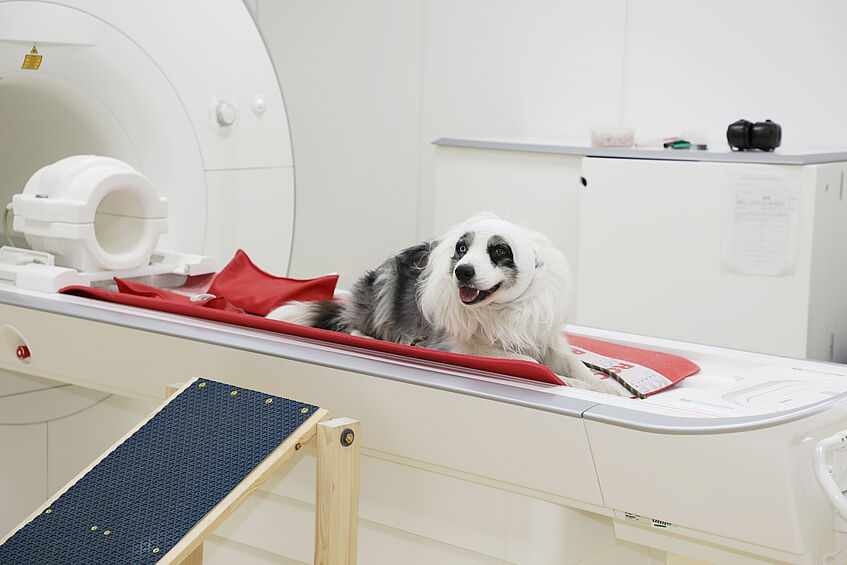
Dog lying on scanner bed wearing noise protection
The CCNU does not house any of the dogs. All dogs passed a veterinary medical check at the University of Veterinary Medicine Vienna to participate in the fMRI study and are pet dogs from Austrian households. They live together with their human caregivers and in some cases with a second or a third dog. The human caregivers voluntarily participate in our study and provided written signed consent that their dogs can be included in the research. They usually show a very strong commitment to the research, and many dogs have already participated in other projects of the Clever Dog Lab. All fMRI research and training procedures have attained approval by the Ethics and Animal Protection Board of the University of Veterinary Medicine Vienna.
